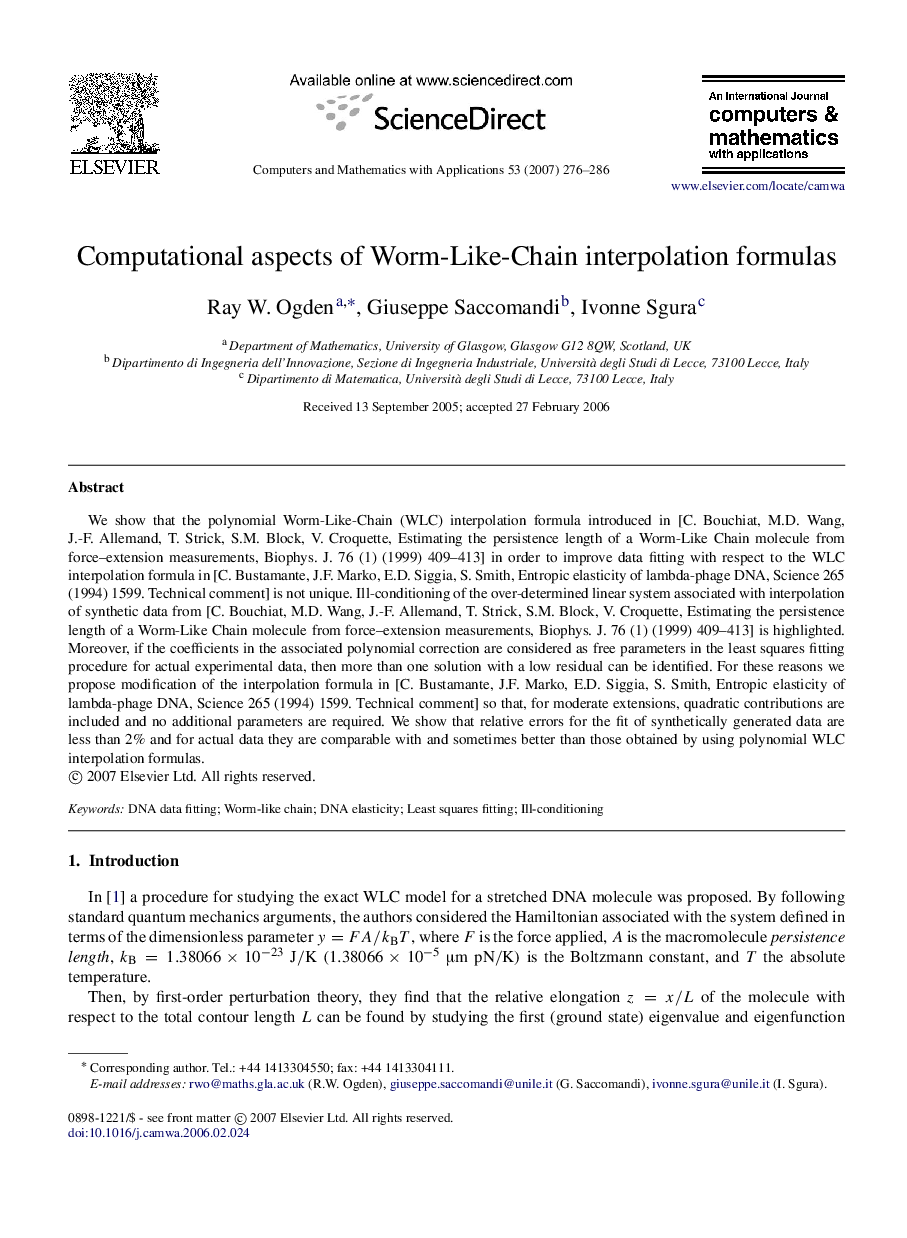| Article ID | Journal | Published Year | Pages | File Type |
|---|---|---|---|---|
| 470157 | Computers & Mathematics with Applications | 2007 | 11 Pages |
We show that the polynomial Worm-Like-Chain (WLC) interpolation formula introduced in [C. Bouchiat, M.D. Wang, J.-F. Allemand, T. Strick, S.M. Block, V. Croquette, Estimating the persistence length of a Worm-Like Chain molecule from force–extension measurements, Biophys. J. 76 (1) (1999) 409–413] in order to improve data fitting with respect to the WLC interpolation formula in [C. Bustamante, J.F. Marko, E.D. Siggia, S. Smith, Entropic elasticity of lambda-phage DNA, Science 265 (1994) 1599. Technical comment] is not unique. Ill-conditioning of the over-determined linear system associated with interpolation of synthetic data from [C. Bouchiat, M.D. Wang, J.-F. Allemand, T. Strick, S.M. Block, V. Croquette, Estimating the persistence length of a Worm-Like Chain molecule from force–extension measurements, Biophys. J. 76 (1) (1999) 409–413] is highlighted. Moreover, if the coefficients in the associated polynomial correction are considered as free parameters in the least squares fitting procedure for actual experimental data, then more than one solution with a low residual can be identified. For these reasons we propose modification of the interpolation formula in [C. Bustamante, J.F. Marko, E.D. Siggia, S. Smith, Entropic elasticity of lambda-phage DNA, Science 265 (1994) 1599. Technical comment] so that, for moderate extensions, quadratic contributions are included and no additional parameters are required. We show that relative errors for the fit of synthetically generated data are less than 2% and for actual data they are comparable with and sometimes better than those obtained by using polynomial WLC interpolation formulas.
